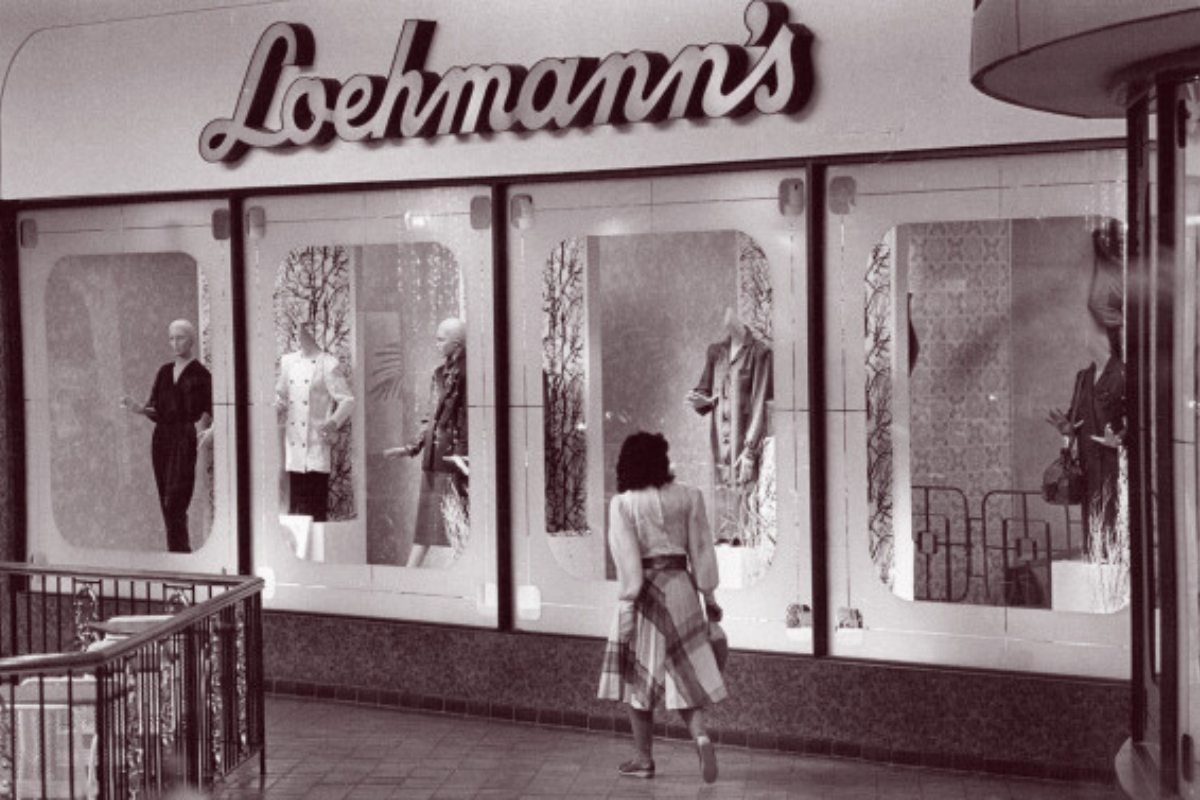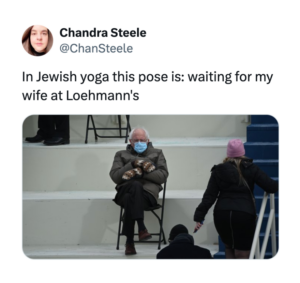Breaking news: Apparently, Loehmann’s, the beloved off-price department store that closed for good in 2014, is coming back?
Here’s what we know: A generic website exists — with a copyright date of 2025 at the bottom — declaring that Loehmann’s is coming back soon, reimagined as an online store. As far as I can find, there has been no news about this in any business or fashion publication. There are no job postings on LinkedIn or Indeed (in fact, the link to the company from the Indeed page leads somewhere that I’m pretty sure gave my computer a virus.) There are two Loehmann’s Instagram accounts; one that seems to be the official page associated with the brand back when it closed in 2014 (the last post is a picture of a horse in a snowy field from 2016), and another account with three (if I’m being honest, not super professional) posts from late January and early February teasing a relaunch.
Here’s what else we know: Our readers consider Loehmann’s — which started in Brooklyn in 1921 — a Jewish institution and would probably keep the new store afloat.
I have a few fleeting memories of shopping at Loehmann’s as a child with my mom in the ‘90s, in a strip mall off of a highway in Houston, Texas. Mainly, I remember loathing it, but I do also remember the infamous dressing rooms — communal and chatty and full of nearly naked women. I had no idea there was anything specifically Jewish about it until Jan. 20, 2021, the day of Joe Biden’s inauguration, when I happened across this tweet:
Indeed, every time Kveller mentions Loehmann’s on social media — as we did last week — the response is overwhelmingly enthusiastic and nostalgic. Commenters share that reading about Loehmann’s brings back memories of their late mothers, or that they bought their bat mitzvah dress there, or felt empowered by seeing so many real women’s bodies. “Are you really Jewish if you’ve never been in a Loehmann’s dressing room?” is a common refrain.
When Loehmann’s closed in 2014, eulogies for the store popped up in Jewish and non-Jewish publications alike: In the Paris Review, Sadie Stein recalled the joke “When the temple was destroyed… the Jews built Loehmann’s!” and in Lilith magazine, Alison Lowenstein wrote, “you could track the Jewish neighborhoods in America by the Loehmann’s locations.” The 2024 essay collection “On Being Jewish Now” features an essay framed around a trip to Loehmann’s. On “The Nanny,” Fran and Sylvia Fine famously loved the store and its discounts.
But what was so Jewish about Loehmann’s? The owner, Frida Loehmann, wasn’t Jewish — in fact, she was once accused of having Nazi ties (a claim to which the Loehmann family basically responded, “We have Jewish friends! And a Jewish doctor!”). Was it just the fact that it opened in a time and place where there were a lot of Jews (Brooklyn, 1921) and thus developed a reputation among Jews that somehow trickled down to Houston, Texas in 1993?
Whether Loehmann’s really is returning or not, it’s safe to say the store will always remain a piece of Jewish American history, if only because of all the memories we collectively hold. We asked the Kveller community to weigh in about what specifically makes Loehmann’s so memorable and so, so Jewish. One funny thing that came up over and over again — proving that our Loehmann’s memories really are a thing of shared consciousness — came from the Jewish women who shopped at the original Brooklyn store, who remember Frida Loehmann herself sitting in a chair (several people called it a “throne”) at the top of the stairs to the communal dressing room, holding court. The rest of your responses are below.
“I think it was Loehmann’s heavily Jewish demographic that it catered to in its origins. Crown Heights, Brooklyn, Fordham Road in the Bronx — before the generations of Jews that were able to afford and be accepted into the finer aspects of society, Loehmann’s gave first and second generations a way to participate in the American dream of consumerism. And, like many traditions born in necessity, it evolved into a kind of badge of courage. Modern generations of Jews didn’t need to shop there, but like Tevye the Milkman says: “Tradition!” —Ann
“It was in Brooklyn. Everyone in Brooklyn was Jewish in the late 40s and 50s, even if they weren’t.” —Enid
“People would comment if you looked good in the clothes, without even being asked. I think that’s what Jewish people do: comment without being asked.” —R
“Everyone knows Jews don’t pay retail.” —Ronna
“No matter what teenage drama I was going through, Loehmann’s was always there to deliver the perfect weekend Bat Mitzvah dress.” —Jessica
“If you haven’t changed in a communal dressing room with 20 yentas commenting on your body, what kind of adult are you?” —Anonymous
“It was a top shopping day with my mom both as a child and then as I grew to an adult and took her to Loehmann’s. I just talked about it in my eulogy for my mom in January.” —Amy
“When I was around my mother and her friends, all Jewish housewives, it seemed to always come up in conversations. Someone was invariably wearing an admired piece of attire purchased at Loehmann’s. I never heard my gentile friends talking about shopping at Loehmann’s with their aunts or moms. Once you got to a certain age shopping there almost felt like a rite of passage into Jewish womanhood.” —Annie
“It was the first cousin of my mom’s mah jongg games: lots of loud women talking over each other, sprinkled with Yiddish.” —Lenore
“Loehmann’s was a social experience. Everyone you knew was there. If they didn’t have what you wanted, you came back the next day. If you shopped in a New York store or one of their Long Island branches you felt right at home. Opinions were shared even if you didn’t know the customer. If you traveled to Miami, you were sure to meet someone you knew. Best friendships were started in their dressing rooms. A fond memory and legions will welcome their rebirth.” —Carolyn
“What made it feel Jewish was the camaraderie of total strangers shopping for simchas, freely giving compliments and harsh criticism. I can’t see that happening in this day and age.” — Adela
“Not necessarily Jewish but it seemed that there was always an abundance of Jewish people shopping there. And you always ran into someone you knew. It was a warm, friendly feeling, not unlike a feeling you might get in temple.” —Marcia
“Everyone who went there was Jewish. It ‘felt’ Jewish.” —Barbara
“We went to Loehmann’s after services on Yom Kippur — I know, terrible, but what else were we going to do in the afternoon, sit around and be hungry?” —Betsy
“The dressing room felt like a coffee clutch of strangers that weren’t really strangers. The shared cultural understanding of how to dole out compliments and kindly tell someone that dress wasn’t as flattering as the last felt very much like being with your Jewish aunts and grandmothers. Only thing missing was a nosh like Stella D’oro cookies.” —Shira
“About 30 years ago I learned in separate phone chats one Sunday morning that my mother, who lived not far from the Loehmann’s in a suburb of Philadelphia; my sister, who shopped at the Loehmann’s in Minneapolis, and I living in San Francisco, had each purchased the exact same skirt while shopping in our respective stores the day before! Talk about the family who shops together, even thousands of miles apart.” —Maryellen
“Growing up as one of a handful of Jews in Montana and moving to Texas in the early 1980s was a culture shock to be sure. But when I learned of Loehmann’s, I could wait to go. I thought it was Jewish owned and Jewish run. Certainly there were more Jewish women in that store than in the whole state of Montana! It was a cultural, spiritual and a religious experience for me!” —Lori
“Most of the women I knew who shopped there were, in fact, Jewish. The hunting for a bargain ‘seems’ to be a Jewish trait. And the butting into everyone’s business (that looks nice on you, that’s too big on you, etc.) seems to be ‘Jewish’ as well.” —Lisa
“I don’t really know. It was just a feeling. I felt warm and cozy there.” —Anonymous









